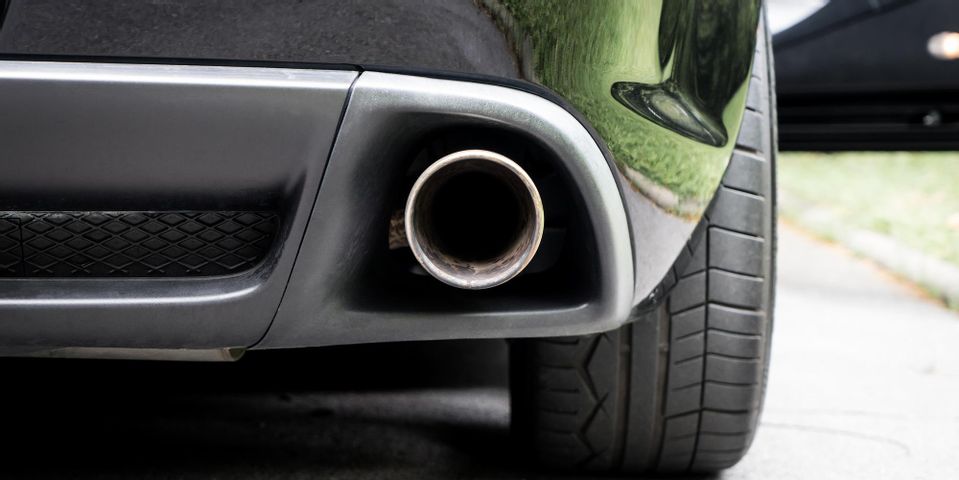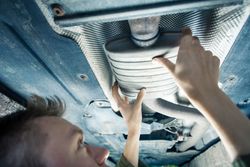5 Components of Your Car's Exhaust System to Know About

Your car’s engine burns fossil fuel, which produces harmful gases. The exhaust system guides fumes from the engine to the tailpipe for release. If the components don’t work properly, toxic chemicals will seep into the interior cabin and can make passengers sick. To avoid this concern, learn below how to identify the key components and to tell if exhaust repair is required.
5 Integral Components of a Vehicle’s Exhaust System
1. Exhaust Manifold
The cylinder head on the engine has multiple exhaust ports. The exhaust manifold connects to the ports, funneling all the fumes from each component to one location, the exhaust pipe. Gaskets seal the connection between the cylinder head and manifold. A cracked or loose gasket can cause an exhaust leak. If you hear a hissing sound, you should have an exhaust repair specialist check for a leak.
2. Exhaust Pipes
 Running along the undercarriage, exhaust pipes channel fumes from the engine to the back of the car. The tailpipe is the last part of the pipework. Extending a few inches from under the car, it vents the exhaust into the air. Driving over potholes and fender benders can damage exhaust pipes. If the fixtures are cracked, you might smell gas in the interior cabin.
Running along the undercarriage, exhaust pipes channel fumes from the engine to the back of the car. The tailpipe is the last part of the pipework. Extending a few inches from under the car, it vents the exhaust into the air. Driving over potholes and fender benders can damage exhaust pipes. If the fixtures are cracked, you might smell gas in the interior cabin.
3. Catalytic Converters
To minimize air pollution, the exhaust system has a catalytic converter. Between the muffler and engine, the device converts carbon monoxide, nitrogen oxides, and hydrocarbons in the exhaust into harmless compounds for safe emission. If the converter goes bad, you might have a hard time accelerating. Your car could also fail emissions testing.
4. Muffler
During combustion, the engine makes noise. The muffler is designed to dampen the sound. It has a set of perforated tubes that reflect sound waves, making the inside and outside of the car quieter. A loud commotion is a sign something is wrong with the muffler. As it also helps funnel exhaust, a bad smell is also a cause for concern.
5. Oxygen Sensors
When exhaust comes out of the manifold, oxygen sensors calculate its air-fuel ratio. Signals are then sent to powertrain controls to make the necessary adjustments. If the sensors are faulty, you’ll notice a decline in fuel efficiency.
For exhaust repair to boost fuel economy, minimize your carbon footprint, and keep passengers safe, contact the technicians at family-owned Bennett Motor Werks, LLC in Litchfield, CT. With over 40 years of experience, the auto mechanics are known throughout Litchfield County for providing exhaust system and engine tune-ups, brake service, oil changes, and additional solutions to keep motorists’ vehicles running smoothly. For exhaust repair, call (860) 567-9290. Connect online to find out why you can count on the team to fix your ride. You can learn more information and see shop photos on Facebook.
About the Business
Have a question? Ask the experts!
Send your question

